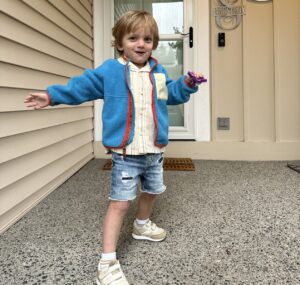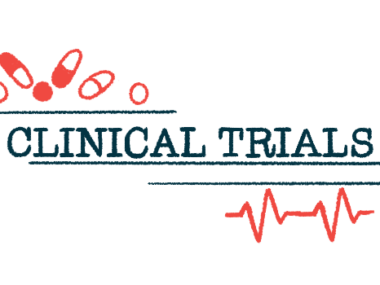Creating understanding around my son’s Alagille syndrome
How do you explain a rare disorder to a 3-year-old? Carefully and gradually
Written by |

Here’s a question that’s been front and center in my mind while raising a child with Alagille syndrome: How do I prepare him to manage his condition? That might seem a crazy concept to explain to a 3-year-old, but that’s my situation, and his.
My son Finley is at the age when he’s curious and inquisitive. I obviously cannot yet delve into the full details of why he visits doctors or takes medicine in the morning and at night. But my wife and I are planting seeds of information that he can understand, ones that we can continue to grow and foster over time.
The easiest topic so far has been his medicines. Put in Finley’s terms, he takes one for his “itchies” and the other to “make his poop brown.” Those are clearly massive oversimplifications, but they’re concepts he can understand and repeat back to us when asked. If the hope is to create some understanding, I think that’s been achieved on this issue.
The tricky parts
What’s harder are the doctor appointments. Explaining an ultrasound seems easy, and indeed, the why is fairly simple. But putting it into language Finley understands is tricky. Thankfully, we’re having fewer of these appointments as of this writing, with a liver ultrasound and an echocardiogram about once a year. Seeing his gastroenterologist, at least right now, likely seems no different than visiting the pediatrician. But we’re doing the preliminary work to help him see the separation in those roles.
As he’s getting older, it’s nice to begin seeing the fruits of that labor. He’s asking questions. He understands concepts. And while we work with Finley, we’re also working with his brother, Jackson, who’s 6.
Finley has noticed that Jackson doesn’t have to take medicine like he does. That’s not the type of conversations I want to be having — no parent wants to discuss why their little child has liver disease — but such talks are helpful to all of us.
They help create knowledge and allow opportunities to learn and share, which are both things that Finley will benefit from in the long term. He’s going to need to draft his own elevator pitch on his disease, as I’ve discussed. Setting the stage for that now allows for his gradual understanding.
Note: Liver Disease News is strictly a news and information website about the disease. It does not provide medical advice, diagnosis, or treatment. This content is not intended to be a substitute for professional medical advice, diagnosis, or treatment. Always seek the advice of your physician or other qualified health provider with any questions you may have regarding a medical condition. Never disregard professional medical advice or delay in seeking it because of something you have read on this website. The opinions expressed in this column are not those of Liver Disease News or its parent company, Bionews, and are intended to spark discussion about issues pertaining to liver disease.









Leave a comment
Fill in the required fields to post. Your email address will not be published.